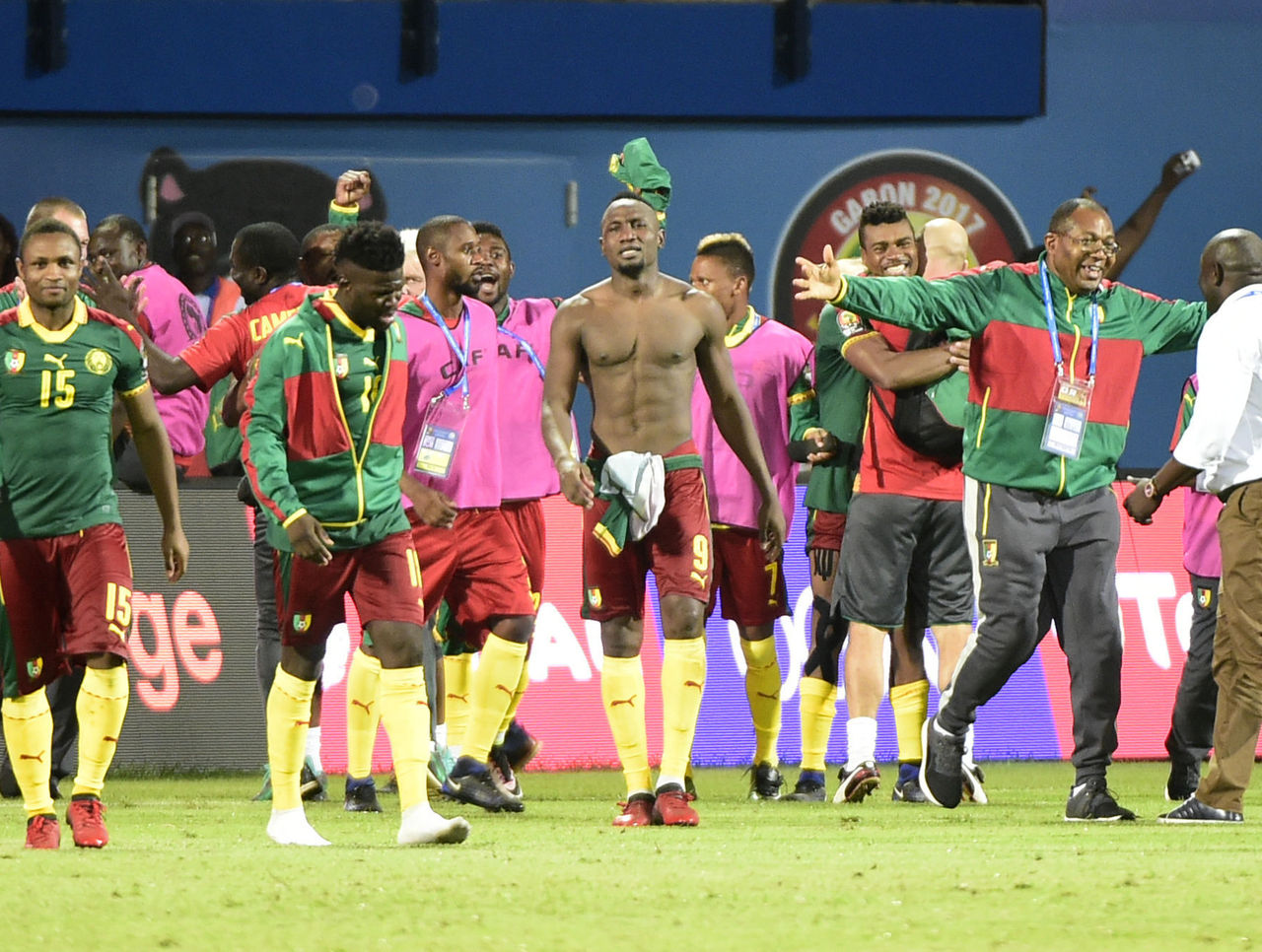Indomitable spirit: No room for egos within Cameroon's love of football
On June 8, 1990, Cameroon started what would become a historic adventure at the World Cup. The Indomitable Lions vanquished Argentina, whose squad included Diego Maradona and who arrived at the tournament as the reigning champion. It was a phenomenal accomplishment for a national team largely comprised of players from the lower divisions of French football, and the victory produced parties across the African country.
"No one thought we could do anything here against Maradona, but we knew what we could do," Francois Omam Biyik, who scored the fixture's lone goal, said after the final whistle. "We hate it when European reporters ask us if we eat monkeys and have a witch doctor. We are real football players and we proved this tonight."
The result was stunning for those who knew nothing about Cameroon, but, for those hailing from the sub-Saharan nation, it was an achievement almost 70 years in the making. Football was brought there not by colonists, but by a photographer from Sierra Leone in the 1920s. His name was Georges Goethe, and he would juggle a ball in the streets of Douala, Cameroon after work.
In Soccer Against The Enemy, Simon Kuper details how Cameroonian football went from one man juggling a ball to overcoming Argentina at the World Cup. Numbers aren't required. One morning in Yaounde, Cameroon is all it took for the author to understand the rise.
"On my first morning in Yaounde, I discovered why Cameroonians are good at soccer: they play it a lot," Kuper wrote. "Forget all the nonsense about African suppleness. To explain the Lions of the 1990 World Cup, all you need to know is that at lunchtime, in the evening, and all weekend, Yaounde turns into a soccer pitch. Some kickarounds draw dozens of spectators, and the quality of play is rare."
It is perhaps for this reason that Cameroon is one step away from restoring its status as the giant of African football, only needing to overcome Egypt.
Related - The Pharaohs' restoration: Egypt in search of meaningful triumph

Eight players made themselves unavailable for Cameroon's journey at the Africa Cup of Nations, including Joel Matip, Allan Nyom, Eric Maxim Choupo-Moting, Guy N'Dy Assembe, Maxime Poundje, Andre Onana, Andre-Frank Zambo Anguissa, and Ibrahim Amadou. They all prioritised club football over international duty, and as a result, nobody gave the Indomitable Lions much of a chance at the tournament.
But when a country lives and breathes football the way Cameroon does, eight absences is far from a death sentence. There's more than enough talent on the streets of Douala and Yaounde to compensate, and some players, such as Ambroise Oyongo, believe the squad is stronger without the egos of those who refuse to pull on a green shirt.
"If the guys were here, we wouldn't be how we are now," Oyongo told BBC Sport. "We have made an effort in every game. If they were here, I don't think they would put in the same effort so it's good for us to forget the other players so we focus on the team (that is here)."
Hugo Broos, Cameroon's Belgian manager who injected a fresh mentality into the Indomitable Lions, echoed Oyongo's words, saying: "There were some players who didn't come - I think maybe now they regret that they are not here with us. They still have a future, but the decision is now with them.
"I will not phone them and ask them if they will come. They have to phone me to say 'I'm ready to play for Cameroon.' And not only one game. Because when they come, they stay. It's not today I come and the next they go. So it's all they come or they are definitely not coming."
Before the 1990 World Cup, Roger Milla came out of international retirement at the request of Paul Biya, who was then Cameroon's president. Milla was 38 years old at the time and living in Reunion, a French region in the Indian Ocean, but he understood the value in representing the Indomitable Lions, proudly declaring he was "always ready to be called to my country's colours."
Milla's love for international football is in stark contrast to the eight players who declined to travel to Gabon, and it should come as no surprise that he questioned their decision during the Africa Cup of Nations, with the Cameroonian legend mentioning: "I think that they now have regrets."
Should Cameroon triumph over Egypt and conquer Africa, it might not be as big of a shock as when the Indomitable Lions devoured Maradona, but it will be an example of what a country can do when within its borders lies one giant pitch on which everybody plays, and on which egos have no place.
HEADLINES
- Scherzer, Bieber make Jays' playoff rotation scary and surprising
- ESPN replaces Doris Burke with Tim Legler on lead broadcast team
- Reinhart: Crosby the 'biggest motivation' for Olympic team
- Minority owners sue Ishbia, Suns for access to financial records
- NFL insights: Most bets on Eagles, Bills to win Super Bowl